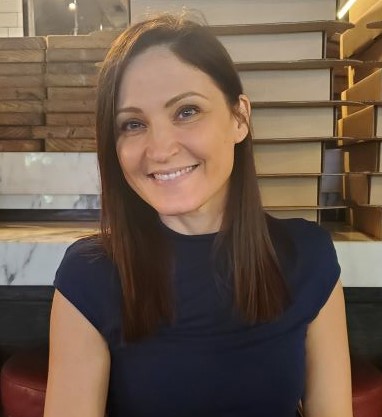New technologies in literacy research:
“Measuring” embodiment through
galvanic skin response
Speaker
Dr Csilla Weninger
Date
Nov 7
Time
12:45-14:00
Location
MWC411-412 HKU
Abstract
Registration:
https://hkuems1.hku.hk/hkuems/ec_regform.aspx?guest=Y&UEID=91114
Abstract:
There has been much interest in the notion of embodiment within literacy research over the past decade or so,
coinciding with a broader turn toward the affective dimension of human experience and meaning-making within the
social sciences. Several strands of research have developed along somewhat different epistemological dimensions.
Sociomaterial approaches focus on the body’s relational engagement with objects, texts and people and how they
shape the nature and process of literacy-as-event (Burnett & Merchant 2018) while multimodal literacy scholars
have investigated embodiment as corporeal resources (Lim, 2020, p. 2) in an attempt to map sensory literacies
(Mills, 2016) within the increasingly digital literacy terrain. Yet this intense focus on embodiment and the body and
theoretical advances in its relation to literacy has not been matched with the same level of methodological innovation.
Drawing on a study of home literacy practices of secondary-aged youth in Singapore, in this talk I explore
embodiment at the intersection of theory and method in literacy research. The teenagers in the study were observed
engaged in various literacy activities and their levels of arousal tracked through a wearable sensor that measured
galvanic skin response. The question I aim to pursue in the talk is not so much what the measures ‘tell us’ about
literacy, but rather how we may conceptually integrate new methodologies into the study of embodiment in literacy.
About the Speaker
Trained as a sociolinguist, A/P Csilla Weninger’s research examines language in its social
contexts of use along two main strands. First, she is interested to explore how spoken,
written and visual discourse manifests, propagates and reinforces cultural and political
ideologies that can be traced and uncovered through the detailed analysis of text and talk.
A bulk of her publications in this area concern the impact and imprint of ideologies on the
conduct of schooling, primarily through textbooks, policies and classroom discourse.
Second, and as an extension of the first area, her research aims to examine and develop
critical approaches to English language and literacy education. A key concern for such
approaches is moving beyond literacy as a skill and fostering students’ engagement with
texts as a reflexive and affective situated social practice. In this regard, she has been involved in researching and
teaching digital media literacy as a foundational skill and disposition for 21st century education. Theoretically, her
work is situated at the intersection of critical discourse studies, sociocultural linguistics and critical literacy studies.
She is co-editor in chief of Linguistics and Education, and head of English Language & Literature, at National Institute
of Education, Singapore. Email: csilla.weninger@nie.edu.sg
Chair
Dr Clarence Green


